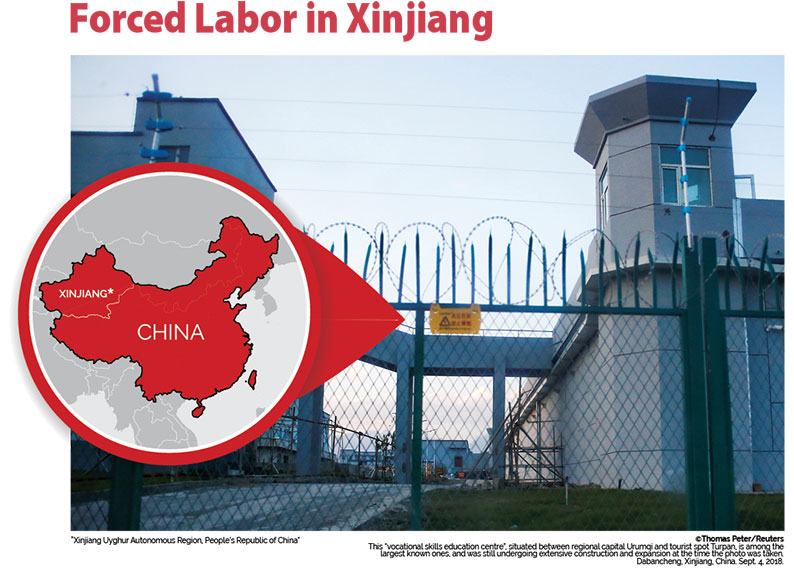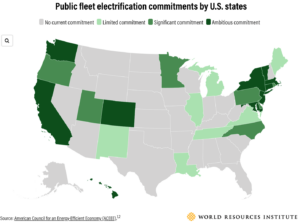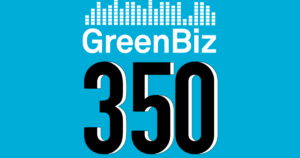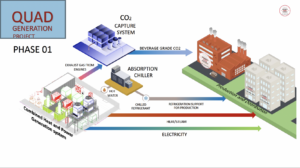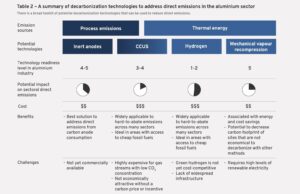When Mahendra Pandey was a teenager, he traveled from his home country of Nepal to Saudi Arabia for work. He said his passport was confiscated upon arrival, and he was forced to work until his three-year contract ended. Today, more than 20 years later, Pandey works as senior manager of forced labor and human trafficking at Humanity United, a philanthropic organization focused on combating forced labor, and he’s looking to businesses to play their part.
"When we talk about this, we talk to sustainability people who sit in London or New York City and who have degrees from Princeton and Harvard, but those people don’t tell the supervisors and factory managers in Malaysia what needs to change," he said. "There’s a huge gap."
Forced labor falls under the more general issue of modern slavery. According to the International Labour Organization, any situation in which an individual is forced to do work they have not agreed to — whether through human trafficking or because an individual is reliant on their "employer" for food and shelter — counts as modern slavery.
Climate change is a leading cause of human migration and displacement, which puts millions of people at risk of trafficking. Sudden climate disasters such as tsunamis and hurricanes uproot people from their homes and communities, while more gradual changes such as rising temperatures cause drought and food shortages that require people to go elsewhere to survive. However, our solutions to the crisis can also raise the risk of modern slavery, according to a recent report by the international human rights group, Walk Free.
A policy is a really good start, but it’s useless unless it’s implemented and unless you know where the problems are.
The Walk Free analysis, the fifth Global Slavery Index the group has published, suggests that G20 countries are importing $14.8 billion in solar panels that may have been made with forced labor. That makes solar panels the fourth highest value of all at-risk products for the first time after electronics, garments and palm oil.
Many renewable energy businesses have published anti-modern slavery policies that stipulate no tolerance for forced labor. For example, U.K. clean energy company Ripple Energy says on its website that it is "fully committed" to preventing slavery and human trafficking in its supply chain. The company conducts supplier risk assessments and considers the risk in countries where it sources materials and products, according to the statement.
Electric vehicle company Tesla, which did not respond to requests for comments, has published a policy showcasing "zero tolerance approach to modern slavery." The company said it ensures workers aren’t being exploited through a due diligence process.
Several other solar power and electric vehicle companies did not respond to requests for more details about how they enforce their anti-modern slavery policies.
The limitations of regulating the supply chain
Although many companies have anti-modern slavery declarations on their website, those statements don’t explain the methods used or resources allotted to policing their supply chains.
"A policy is a really good start, but it’s useless unless it’s implemented and unless you know where the problems are," said Serena Grant, head of business engagement at Walk Free. "You can’t just have it on your website. You have to do a risk assessment and conduct due diligence."
One primary issue with the renewable energy supply chain is the metals required to build solar panels, turbines, storage and related devices, according to the Walk Free report. The Business and Human Rights Resource Centre found nearly 510 human rights abuses related to the mining of cobalt, copper, lithium, manganese, nickel and zinc, all essential for renewable energy products. These abuses included unpaid labor, exploitative hiring, child labor and discrimination.
One example is polysilicon, essential for building solar panels and primarily sourced from the Xinjiang region of China, home to the Uyghur population. Uyghurs are Muslim residents in Western China who are being policed and surveilled by the Chinese government. Several published reports have accused China of carrying out forced sterilizations, re-education camps and forced labor.
About 40 percent of polysilicon, an essential material for solar panels, comes from the Xinjiang Uyghur Autonomous Region. The U.S. Department of Labor found that polysilicon coming from Xinjiang is being produced under conditions of forced labor and, in 2022, banned imports of all goods produced in the Xinjiang region.
Another place known for widespread occurrences of forced labor is the Democratic Republic of the Congo (DRC). Cobalt, an essential material for lithium-ion batteries, which power electric vehicles and store solar energy, is mined in the DRC.
While the U.S. limited American companies from sourcing materials from Xinjiang, in general, companies are responsible for regulating their supply chain.
SolarPower Europe, an association that represents over 300 organizations, assists solar companies with audits on worker conditions at each stage of the supply chain.
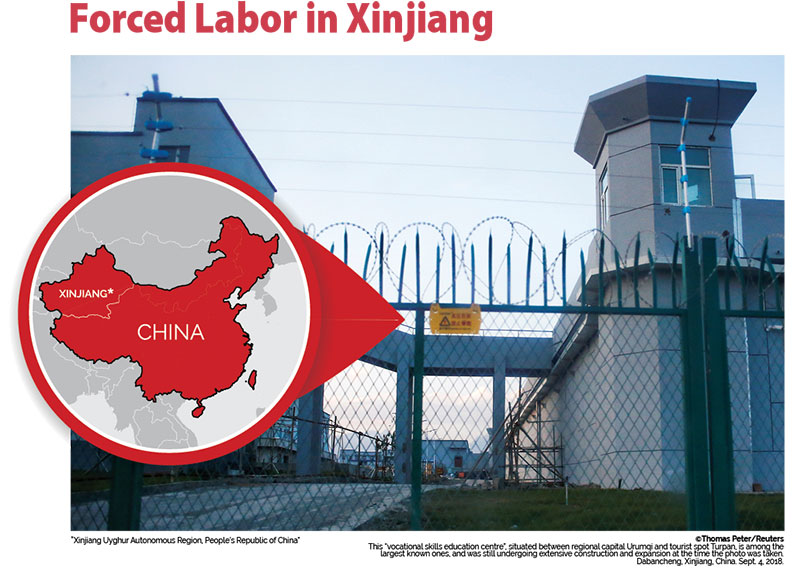
![]()
![]()
![]()
![]()
![]()
![]()
![]()
The challenge with audits
Audits are the most popular way for companies to check on their supply chain. However, this kind of verification requires a lot of financial investment from renewable companies. "Unfortunately, many of these industries are reliant on forced labor," Grant said. “Huge investment is needed to scale up the transition to renewable energy.”
While more and more renewable energy companies claim to be carrying out audits, the average cost of just one investigation is around $7,640 to $10,915, said Alexia Ruvoletto, senior policy adviser on trade and sustainability at SolarPower Europe. "Big players do have the resources," she said. "But for smaller players, this is challenging."
In an effort to make the supply chain more transparent, SolarPower Europe is developing the Solar Stewardship Initiative, a collaboration between manufacturers, developers, installers and purchasers, as well as NGOs and academics, to create supply-chain transparency in the solar industry. The initiative is still forming, but the goal is for it to become a representative body of industry professionals.
This type of multistakeholder engagement is becoming more common in Europe. Investors are also doing more to encourage companies to address modern slavery risks. As one example, the Swedish AP Funds’ Council on Ethics, which represents sustainable efforts of Swedish asset owners, facilitated a collaboration between big tech firms to better manage their human rights risks. The collaboration consists of a three-year initiative to provide practices that help these firms take action to address human rights risks in their supply chains, and then report those actions publicly.
"[The initiative] is to really have these laws become effective and not remain on paper," Ruvoletto said. "Multistakeholder initiatives can function as a platform for implementation."
However, advocates feel such initiatives often fail to include the voices of individuals in the factories who are manually crushing and shoveling silicon in Xinjiang or digging cobalt with their bare hands in the DRC.
The corporate-worker divide
Businesses need to listen to workers rather than look to engineers or consultants for solutions on how to address forced labor, Pandey said.
"If they want to incorporate a solution, first they need to listen to workers, and they will tell you the problems, the challenges and what needs to be implemented," Pandey said. He believes that there is a stereotype among business owners that if they listen to workers, all they will get are complaints. "That is not always true," he said. "They can provide practical and helpful information."
Grant echoed this sentiment. "Once you have identified the risk, talk to them. How are they treating the workers? Do they have a grievance mechanism? Either with a third party audit or a person from the company," she said. "And do it using worker voice tools — engage with them in their own language."
One easy fix, Pandey said, is changing the language of the codes of conduct. "They always focus on creating principles and conduct," he said. "But we want to make sure the code of conduct is in the local language and certified with the local people."
If [businesses] want to incorporate a solution, first they need to listen to workers, and they will tell you the problems, the challenges and what needs to be implemented.
The United Nations Secretary General officially advocated for the companies to put grievance mechanisms in place so workers can report exploitation, but the report, published in 2019, doesn’t have any legal standing.
"If they really want to see the changes, they should be going to these countries," Pandey said, encouraging companies to send people to the factories and supply chain locations to understand the working conditions.
The role of governments
Even with local consultation, there is a limit to how much businesses can do.
"Forced labor is not something that the industry can tackle alone," Ruvoletto said. "We are trying to do our part and do our best, we’re in constant contact with the European authorities and are working to get even more leverage by diversifying our supply chains. But we believe we have to pull our weight together."
Walk Free also sees strong policy as fundamental to addressing modern slavery in businesses. "Incentivizing businesses to do this on their own doesn’t work," Grant said. "Stronger laws are required to strengthen but also harmonize how people are reporting on them."
The European Union voted in early June to start discussions on a Corporate Sustainability Due Diligence legislation that would stipulate that European companies and companies active in the EU must identify, prevent, end or mitigate the negative impact of their activities on human rights and the environment. The legislation is focused on any adverse impacts companies might have on human rights and the environment.
The proposal would sanction companies that do not comply with the due diligence. But the supervision of that compliance is up to each individual country, according to a European Commission official. The EU would also have a network of supervisory authorities intended to try to coordinate the effort, the official said.
The U.S. started limiting items from areas known to engage in modern slavery in 2021. No other government efforts have been announced since then.
- SEO Powered Content & PR Distribution. Get Amplified Today.
- PlatoData.Network Vertical Generative Ai. Empower Yourself. Access Here.
- PlatoAiStream. Web3 Intelligence. Knowledge Amplified. Access Here.
- PlatoESG. Automotive / EVs, Carbon, CleanTech, Energy, Environment, Solar, Waste Management. Access Here.
- PlatoHealth. Biotech and Clinical Trials Intelligence. Access Here.
- ChartPrime. Elevate your Trading Game with ChartPrime. Access Here.
- BlockOffsets. Modernizing Environmental Offset Ownership. Access Here.
- Source: https://www.greenbiz.com/article/renewables-are-exacerbating-modern-slavery-how-businesses-can-act
- :has
- :is
- :not
- :where
- $UP
- 15%
- 20
- 20 years
- 2019
- 2021
- 2022
- 300
- 40
- 7
- 8
- 9
- a
- About
- abuses
- AC
- academics
- According
- accused
- Act
- Action
- actions
- active
- activities
- address
- addressing
- adverse
- advocates
- After
- All
- alone
- also
- always
- American
- among
- an
- analysis
- and
- announced
- any
- approach
- ARE
- areas
- around
- arrival
- AS
- assessment
- assessments
- asset
- assists
- Association
- At
- audit
- audits
- Authorities
- autonomous
- average
- batteries
- BE
- because
- become
- becoming
- been
- being
- believe
- believes
- BEST
- Better
- between
- Big
- big tech
- Billion
- body
- build
- Building
- business
- business owners
- businesses
- but
- by
- CAN
- carrying
- Cause
- Center
- centre
- Certified
- chain
- chains
- challenge
- challenges
- challenging
- change
- Changes
- changing
- check
- child
- China
- chinese
- City
- claim
- clean energy
- click
- Climate
- code
- codes
- collaboration
- comes
- coming
- comments
- commission
- committed
- Common
- Communities
- Companies
- company
- complaints
- compliance
- comply
- conditions
- Conduct
- conducts
- Congo
- considers
- consists
- constant
- consultants
- consultation
- contact
- contract
- coordinate
- Copper
- Cost
- Council
- countries
- country
- create
- Creating
- crisis
- data
- democratic
- Department
- Department of Labor
- details
- developers
- developing
- Devices
- DID
- diligence
- disasters
- Discrimination
- discussions
- do
- Doesn’t
- doing
- Dont
- Drought
- due
- each
- easy
- echoed
- Effective
- effort
- efforts
- either
- Electric
- electric vehicle
- electric vehicles
- Electronics
- elsewhere
- encourage
- encouraging
- end
- energy
- enforce
- engage
- engagement
- Engineers
- ensures
- Environment
- essential
- Ether (ETH)
- ethics
- EU
- Europa
- Europe
- European
- european commission
- european union
- Even
- example
- Explain
- exploitation
- exploited
- factories
- factory
- FAIL
- Falls
- feel
- fifth
- financial
- firms
- First
- first time
- Fix
- Focus
- focused
- food
- For
- found
- Fourth
- Free
- from
- fully
- function
- fundamental
- G20
- gap
- garments
- General
- get
- Global
- Go
- goal
- going
- good
- goods
- Government
- gradual
- grant
- Group
- harvard
- Have
- he
- head
- help
- helpful
- highest
- Hiring
- his
- Home
- Homes
- How
- How To
- However
- HTTPS
- huge
- human
- human rights
- Humanity
- identified
- identify
- if
- Impact
- Impacts
- implementation
- implemented
- importing
- in
- incentivizing
- include
- included
- incorporate
- index
- individual
- individuals
- industries
- industry
- information
- Initiative
- initiatives
- intended
- International
- investigation
- investment
- Investors
- issue
- IT
- items
- ITS
- jpg
- just
- just one
- Kind
- Know
- known
- labor
- Labour
- language
- later
- Laws
- Legal
- Legislation
- Leverage
- LIMIT
- limitations
- Limited
- lithium
- local
- locations
- London
- Look
- looking
- Lot
- made
- make
- MAKES
- Malaysia
- manage
- manager
- Managers
- Manufacturers
- many
- map
- material
- materials
- May..
- mechanism
- mechanisms
- Metals
- methods
- might
- migration
- millions
- mined
- Mining
- Mitigate
- Modern
- more
- most
- Most Popular
- move
- much
- must
- Nations
- nearly
- Need
- needed
- needs
- negative
- network
- New
- New York
- new york city
- NGOs
- Nickel
- no
- of
- official
- Officially
- often
- Oil
- on
- once
- ONE
- or
- organization
- organizations
- Other
- our
- out
- over
- own
- owners
- palm
- panels
- Paper
- part
- party
- passport
- People
- percent
- person
- philanthropic
- Place
- platform
- plato
- Plato Data Intelligence
- PlatoData
- Play
- players
- policies
- policing
- policy
- Popular
- population
- power
- Practical
- practices
- presentation
- prevent
- preventing
- primarily
- primary
- princeton
- principles
- problems
- process
- Produced
- Products
- professionals
- proposal
- provide
- publicly
- published
- put
- Puts
- raise
- rather
- really
- recent
- region
- regulating
- related
- remain
- Renewable
- renewable energy
- Renewables
- report
- Reporting
- Reports
- representative
- represents
- Republic
- requests
- require
- required
- requires
- residents
- resource
- Resources
- Respond
- responsible
- rights
- Ripple
- rising
- Risk
- risk assessment
- risks
- Role
- s
- Said
- Sanction
- Saudi
- Saudi Arabia
- Scale
- secretary
- see
- sees
- send
- senior
- sentiment
- several
- she
- Shelter
- shortages
- should
- showcasing
- since
- sit
- situation
- smaller
- So
- solar
- solar energy
- solar panels
- Solar Power
- solution
- Solutions
- something
- sourced
- Sources
- Sourcing
- Stage
- start
- started
- Statement
- statements
- Stewardship
- Still
- storage
- store
- Strengthen
- strong
- stronger
- such
- sudden
- Suggests
- supervision
- supplier
- supply
- supply chain
- Supply chains
- sure
- survive
- Sustainability
- sustainable
- Swedish
- tackle
- Take
- Talk
- tech
- teenager
- tell
- Tesla
- than
- that
- The
- The Initiative
- The Voices
- their
- Them
- then
- There.
- These
- they
- Third
- this
- those
- Through
- time
- to
- today
- together
- tolerance
- tools
- trade
- trafficking
- transition
- Transparency
- transparent
- traveled
- treating
- true
- try
- type
- U.K.
- u.s.
- under
- understand
- unfortunately
- union
- United
- united nations
- until
- upon
- used
- using
- value
- vehicle
- Vehicles
- Verification
- Voice
- VOICES
- voted
- want
- was
- Way..
- we
- Website
- weight
- WELL
- Western
- What
- when
- whether
- which
- while
- WHO
- will
- with
- Work
- worker
- workers
- working
- works
- would
- years
- york
- you
- Your
- zephyrnet
- zero

